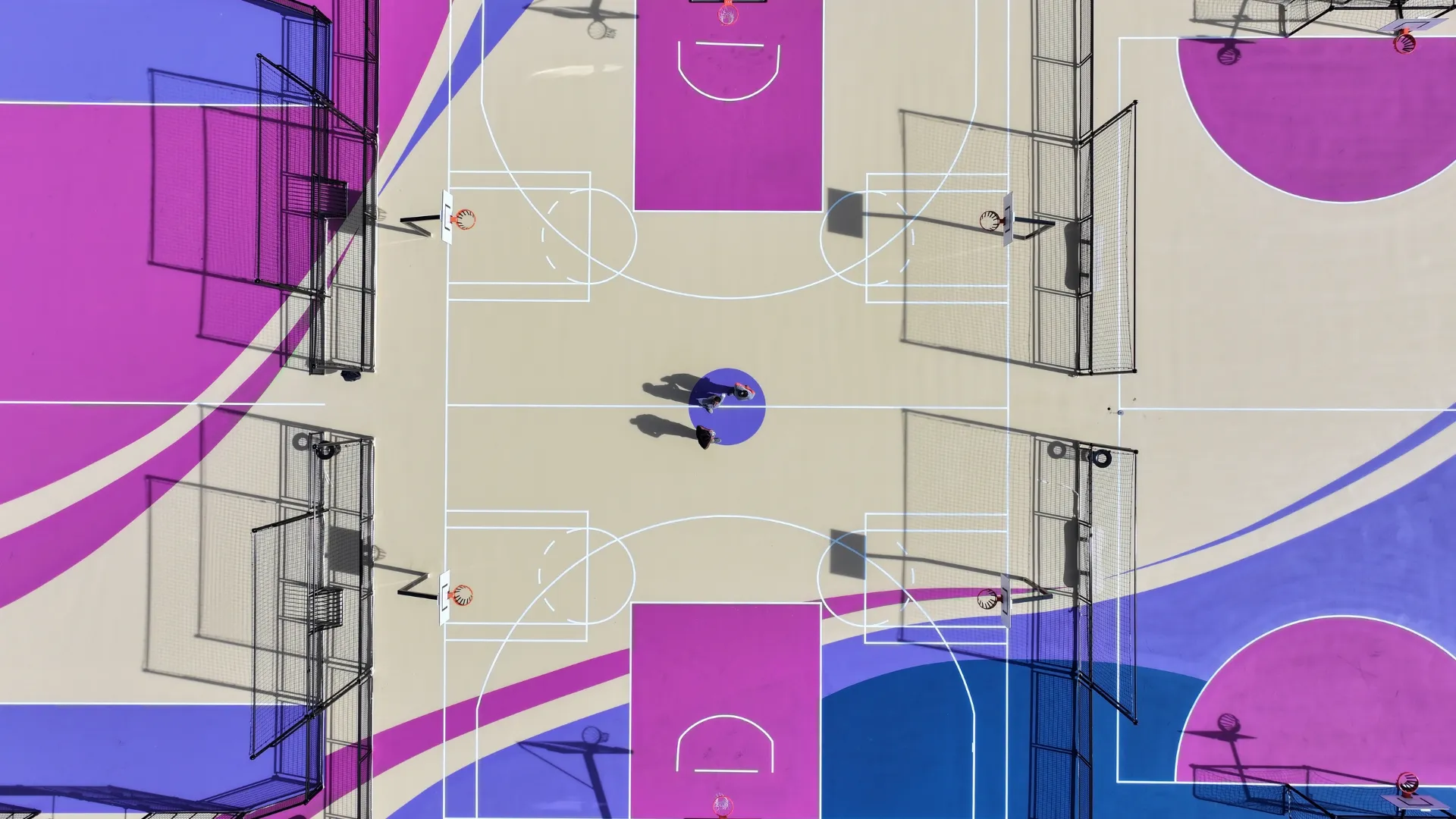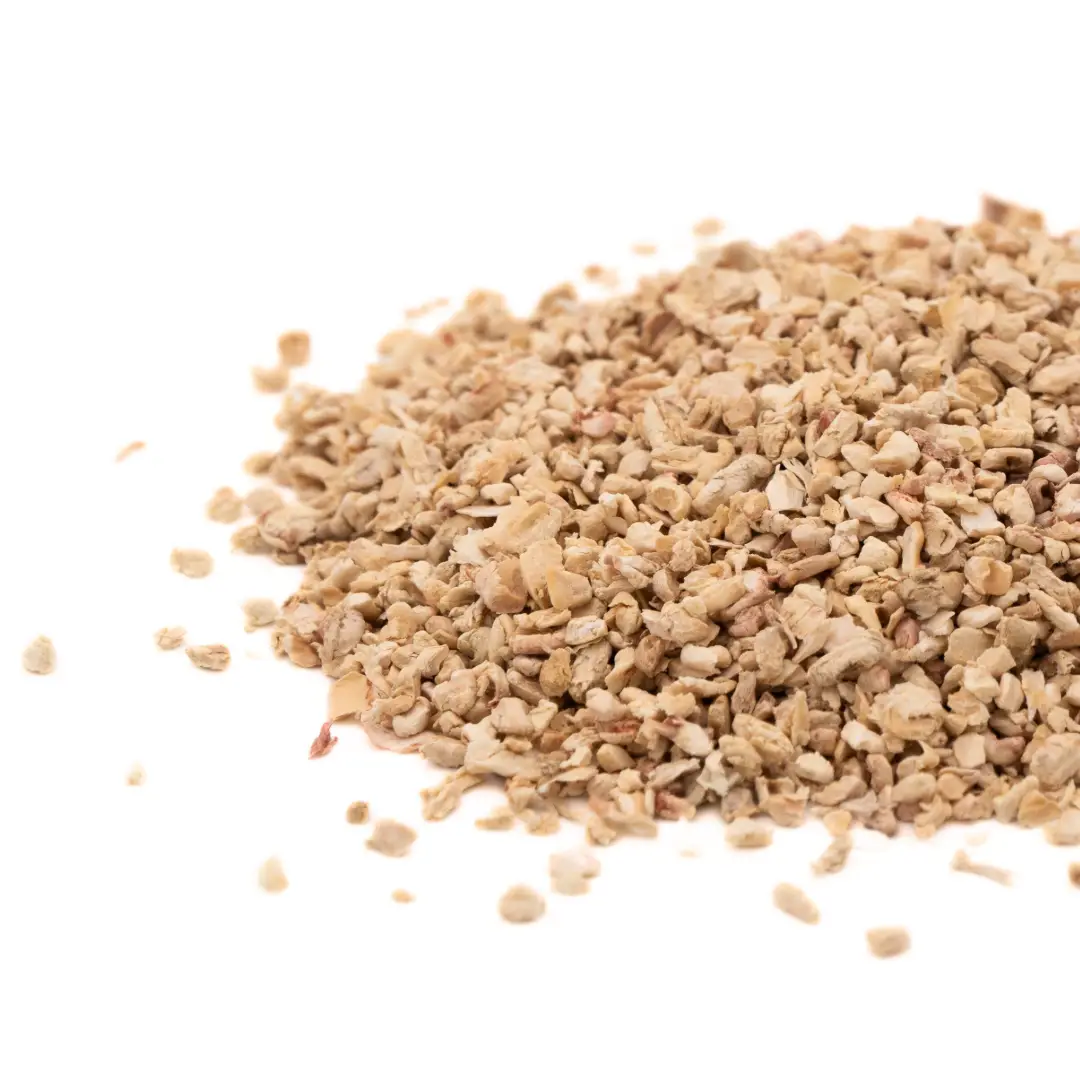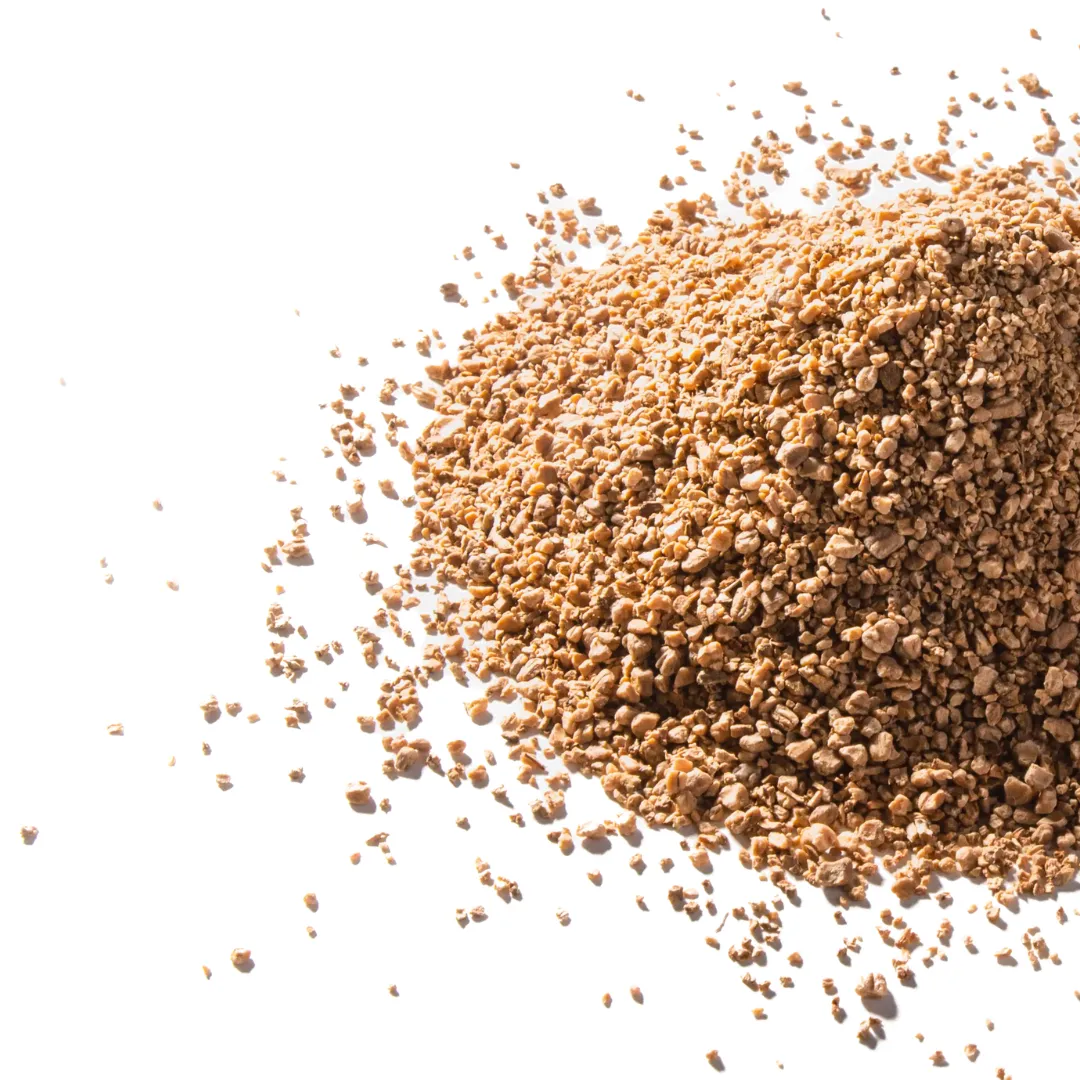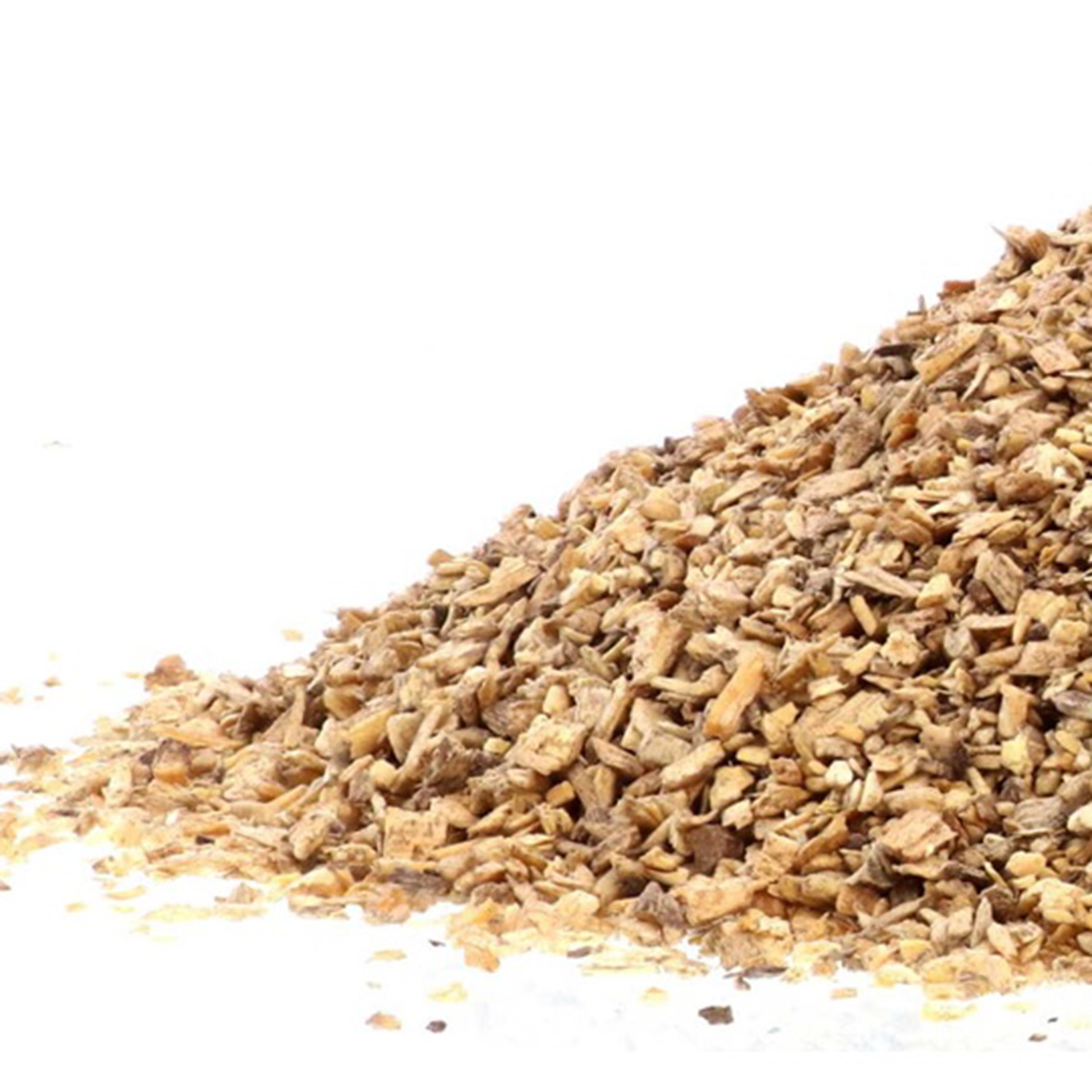In the third and final part of our blog post, we present the comprehensive recycling of old artificial turf systems by our newly founded sister company FormaTurf.
Recycling of Artificial Turf Systems
Another step in the sustainability strategy of Polytan's parent company Sport Group comes with the newly founded sister company FormaTurf: With this, Polytan will in future offer 100% recycling of old artificial turf systems. A state-of-the-art facility for such artificial turf recycling is currently being built at the port of Essen on approximately 20,000 square metres. If everything goes as planned, production there will start in the second half of 2022 to feed old synthetic turf coverings back into the circular economy.
The Problem of Disposal
Because the fact is, after about 12 to 15 years of use, an artificial turf must be replaced, depending on quality, maintenance, and intensity of use. Until now, it was not only the sheer amount of material to be disposed of that was problematic – around 200 tons accrue when dismantling a synthetic turf large field of approx. 7,000 square metres – but also its lack of "quality": a mixture of various materials that are partially consumed and worn out by playing operations and UV exposure. And the problem is pressing, because here in this country there are about 6,000 synthetic turf pitches, many of which will soon reach the end of their lifespan. In addition, the number of pitches that will need to be replaced is likely to grow in the future, simply because more and more synthetic turf fields are being built.
Recycling Process for the Entire Artificial Turf System
Discarded artificial turf strips have so far been partially used thermally or pressed and then exported – a solution far from any sustainability efforts. Therefore, Polytan is tackling the problem with the company FormaTurf GmbH founded in November 2021, a subsidiary of the Sport Group Holding GmbH, to realise sustainable, holistic, and also transparent recycling of disused artificial turf systems. In the process, the entire turf undergoes recycling so that at the end, the backing, filaments, and the infill can all be returned to the raw material cycle.

Knocking Out
After the delivery of the dismantled artificial turf rolls using the „cut and roll“ method, the first step is the so-called knocking out, in order to separate as much sand and infill from the backing and filaments as possible – after all, sand accounts for around 70% of the weight. The sand/infill mixture is then separated and cleaned. In the end, a high-purity sand is achieved with a purity level of up to 99%. Subsequently, the sand is dried and ideally reused as infill on artificial turf fields.
As long transport routes not only constitute a significant part of total costs but would also cloud the CO2 balance, FormaTurf is aiming for regional reuse. Essen as a location was not chosen by chance, as the density of artificial turf pitches in the most populous Rhine-Ruhr region is higher than anywhere else in Germany – resulting in the highest number of pitches to be recycled in the future.
Shredding, Heating and Fusing
In another step, the backing is shredded into millimetre-sized pieces along with the filaments, mixed with the separated infill material, and then recycled as material. This process, for which FormaTurf has applied for a patent („Aptrusion“), allows for processing a sand content of up to 75 percent. Because despite the knocking out, the sand grains have partially bonded tightly with other substances over the lifespan of the synthetic turf areas.

New Plastic Products
The turf carpet and the rubber granulate are finally processed into new plastic products such as edging stones, grass grids or modular flexblocks, which, incidentally, can also be used in sports field construction. Also conceivable are compost systems, raised beds, panels for carports, partitions for sports fields or plastic paving stones. With nailer boards, the recycled plastics could even be directly reused in artificial turf installation.
Maximum Transparency
Besides the complete recycling of replaced artificial turf systems, FormaTurf is striving for maximum transparency in this process. Previously, the routes the artificial turf strips took after dismantling were often not traceable for operators of facilities, but FormaTurf intends to play with "completely open cards". A tracking system will guarantee this, where each individually dismantled synthetic turf strip is uniquely marked with a QR code. Three scan processes are set to make the further path traceable: immediately after dismantling, upon delivery to the plant in Essen, and during feed into the recycling process. This allows the disposal process to be clearly documented for the client, i.e., the waste producer.
Furthermore, it should be added that the energy supply of the plant in Essen is 100% sourced from green electricity. Every step of future production has also been meticulously thought out for energy and resource conservation – right down to lighting via LED systems.
No Waste But a Resource
Tom Beck, Managing Director of FormaTurf, takes stock: "An artificial turf system at the end of its lifecycle is not waste for us but a resource. We fully recycle the turf and create new products from it. In this way, we avoid waste and create new values. With the construction of the recycling plant in Essen, we also complete the raw material cycle of artificial turf within the Sport Group corporate group: from development and production by Polytan, through installation and maintenance to dismantling and complete recycling of the system, everything comes from the hands of our parent company Sport Group."

Conclusion and Outlook
This completes the entire value chain from research and development to production, installation, maintenance, and to removal and sustainable recycling, which no other recycler in Germany can offer. As the German market leader in artificial turf systems, Polytan and FormaTurf pursue the medium-term common goal of showcasing sustainable recycling concepts for the whole of Europe.
With our Green Technology, the use of recycled plastics, and the recycling of entire artificial turf systems, we are addressing the challenges of the times!
- Reduction of greenhouse gas emissions: quickly, comprehensively, permanently
- Reduction of fossil raw material consumption: Avoidance (infill), reduction, recycling
- New initiatives in Europe: European Green Deal, Circular Economy Action Plan, Sustainable Product Initiative
- National requirements and regulations: Legislation, funding directives, and credit requirements
- General discussion on societal megatrends such as health, climate, and the environment
- Recycling is "the next big thing" in our industry alongside renewable raw materials.
With this new definition, our synthetic turf systems definitely have a great future in view of users and athletes. Or in other words: With Polytan, artificial turf is reinventing itself – sustainable, ecological, recyclable. Mathias Schwägerl, Managing Director of Polytan GmbH: "We see ourselves as pioneers in sustainability in our industry and want to remain so for the foreseeable future."
More Posts
Discover exciting news about modern synthetic turf systems, track surfaces, cutting-edge technologies, and general information about Polytan. In addition to news, we also provide background information in our blog on sports field construction, sustainability in sports surfaces, and other topics.


-1024x682.webp)


























-600x300.webp)
-600x300.webp)
